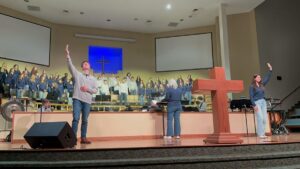Not all declining churches are dysfunctional, but all dysfunctional churches are declining. Is your church dysfunctional? Are you assisting in the dysfunction of your church? Let me list a few ways dysfunction shows up in churches then give some aid.
Dysfunctional means not operating in a normal or proper fashion. Therefore, in the church, if we are not going out and attempting to make Disciples, speaking to people about Jesus in an attempt to allow the Holy Spirit to convict them, we could be part of the dysfunction of the church. The function of the church is our mission – The Great Commission. If we are not growing in our personal walk with God through Jesus, becoming more like Christ, are we not dysfunctional according to Christ’s own teaching?
In the church personal dysfunction often leads to congregational dysfunction, or organizational dysfunction. Congregational dysfunction can occur when a church’s priorities and significances get overturned or out of order. This can manifest in the way a church views its programs, practices, budget, staff, even time restraints.
Refusing to let go of obsolete programs (programs no longer fulfilling The Great Commission) is an outward manifestation of congregational dysfunction. Refusal to change worship times or wanting to change times for our own pleasure are outward manifestations of congregational dysfunction. Cutting the missions giving and ministry budget to maintain a certain quality of staff can also be a sign of congregational dysfunction. On the flip side of that, cutting staff compensation, insurance, or other benefits can also be manifestations of congregational dysfunction.
How can you tell? Ask this question: “Are you keeping the main thing, the main thing.?” If the purpose (function) of the church is fulfilling The Great Commission, will this decision move us toward being like the New Testament church in Acts or will it send us down a path of our own desire?
Lyle Schaller in The Interventionist wrote, “In the healthy congregation the decision-making processes are influenced by (1) obedience to the gospel, (2) a sincere search to learn the will of the Lord, (3) prayer and cooperation, (4) listening rather than screaming, (5) the call to be faithful rather than the urge to prevail, and (6) reason rather than exclusion.”
With a broken and contrite heart pouring your heart and soul into these six attributes any dysfunctional congregation can become a healthy and more effective Great Commission functioning New Testament church. The requirement falls on the shoulders of each one individually. What will be your first step today and through this week in moving your personal life and your church family away from any sign of dysfunction to be more like the bride of Christ?







 by
by